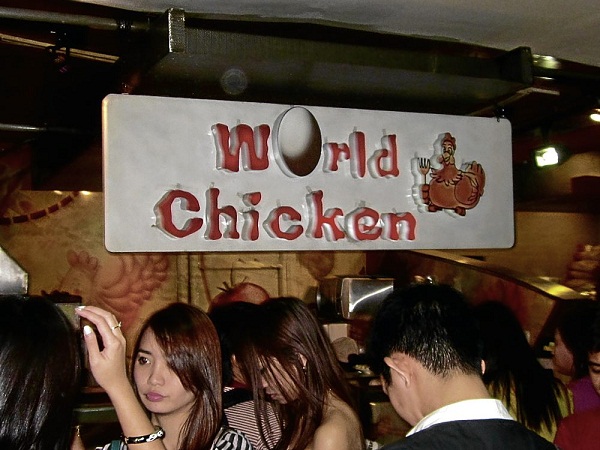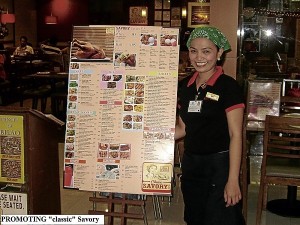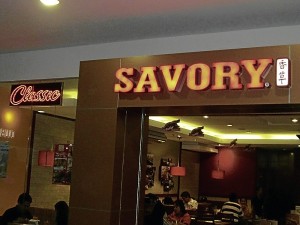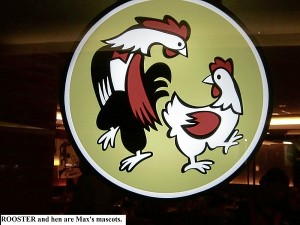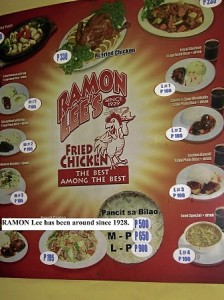Chicken houses galore: Take your pick
The taste for delicious, mouth-watering chicken cuts across nationalities, for chicken is an international favorite. And it can be prepared in so many ways and styles.
The Indians have their chicken curry and the Americans their Col. Sanders (which morphed into Kapag Fried Chicken, KFC) and Kenny Rogers. The Chinese have their chicken a-la-king, the Singaporeans’ Hainanese chicken and we have our chicken adobo and tinola.
The drinkers here go a step further and have found that chicken is a perfect pulutan (bar chow), as in balat ng manok (chicken skin), adidas (chicken feet) and even puwit ng manok (chicken ass).
“Everybody Loves Chicken,” declares the Magnolia slogan. That’s true. Well, almost true. For we cannot include those militant vegetarians who campaign against consumption of meat from “dead animals.”
Why is chicken so popular as a dish, giving sellers of pork and beef a run for their money? One reason could be that it is considered more healthy than pork and beef, although the skin has its share of cholesterol. Some even tear off the skin from the fried chicken, but that somehow lessens the flavor (like doing the same thing to lechon).
The golden oldies are Max’s and Savory and in recent years there has been a proliferation of newbies like World Chicken, Bon Chon, Manang’s, Chic-Boy, Chicken Rice Soup and Mang Inasal..
These are fast food outlets and casual-dining restaurants, or both. They cater to families, students, office employees and especially, mall goers.
Max’s, “The House that Fried Chicken Built,” was set up in 1945, powered by a secret family recipe that has served its owners, the Trotas, well. Its main product is tender, and has a distinct flavor. It has survived the onslaught of Jollibee’s Chicken Joy and McDo chicken.
Max’s can be found everywhere, in all the malls here (and also abroad). Its mascots are a rooster and hen who seem to be in some kind of courtship dance.
Savory was founded in 1950 and its most visible presence then was in Escolta, the once fashionable shopping district of “downtown Manila.” There were other outlets, in UN Avenue, Manila; Harrison St., Pasay City; and Ever Gotesco, Quezon City.
Then the restaurant seemed to disappear for a time, and suddenly it was back with a vengeance—in the SM malls. It took on a more modern look, reinvented itself as “Classic Savory” but basically had the same cuisine: “Chicken is what we are known for,” the menu proudly proclaims.
The cleverly-titled double-entendre Chic-Boy (for chicken and baboy or pork) has rapidly gained a clientele with its Visayan (Cebuano and Ilonggo) cuisine, garnished with herbs and spices. And now it has 118 branches in the country.
Mang Inasal was set up by a young Ilonggo, Edgar Sia, and bought by Jollibee for P1 billion recently.
Manang’s soy garlic chicken “was borne out of a well-loved recipe by a family cook,” and started the restaurant with a budget of only P15,000. It now has nine branches, among the latest being in Megamall.
Ironically it was a friend from Palawan, the folksinger Nonoy Lanzanas, who while on a visit to Metro Manila introduced me to World Chicken; and I have been patronizing the place ever since from time to time. The specialty is grilled chicken, and the slogan of the house is “be kind to your heart.” World Chicken is now found in many malls but, for some reason, the longest lines can be seen in Glorietta 3, Makati City.
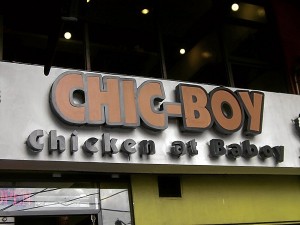
CEBUANO, Ilonggo cuisine, garnished with herbs and spices. Photo by Amadís Ma. Guerrero, Contributor
Chicken Rice Soup is the newest kid on the block. Its main branch is in Harbor Square, beside the Cultural Center of the Philippines. It offers, among other dishes, Hainanese chicken and roast chicken (my preference).
My favorite chicken house—for reasons of taste as well as for sentimental reasons—is Ramon Lee Restaurant, an old-fashioned Chinese panciteria in Roquillo St., Santa Cruz, Manila. It started operations in 1928 and I discovered it in—gasp—the 1960s, when I was a young Associated Press deskman working at the old TVT building beside the Roces-owned Manila Times.
With a small but loyal clientele (and with Jollibee right across it), Ramon Lee has managed to survive by simply being there and by relying on its fried chicken specialty. That’s laid-back—but successful—marketing.

